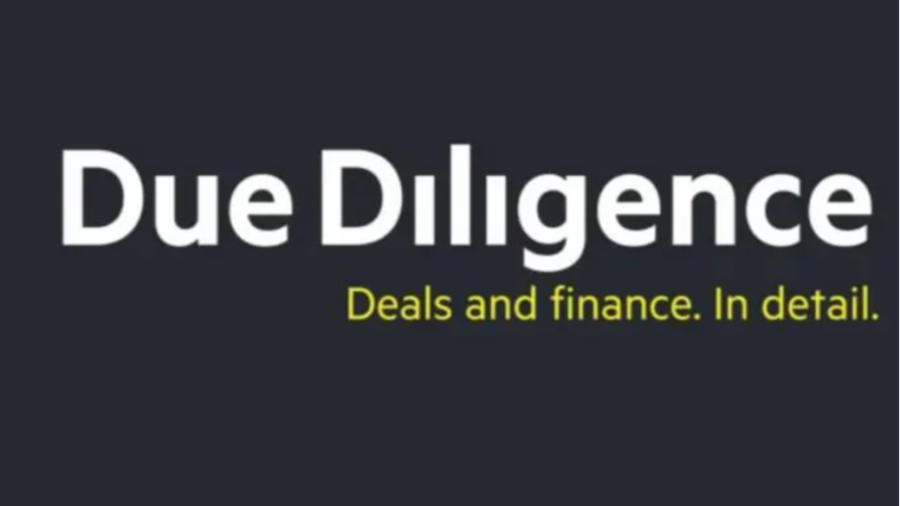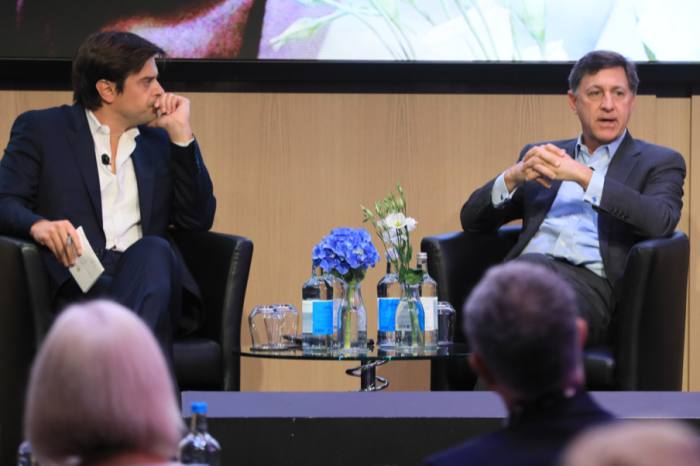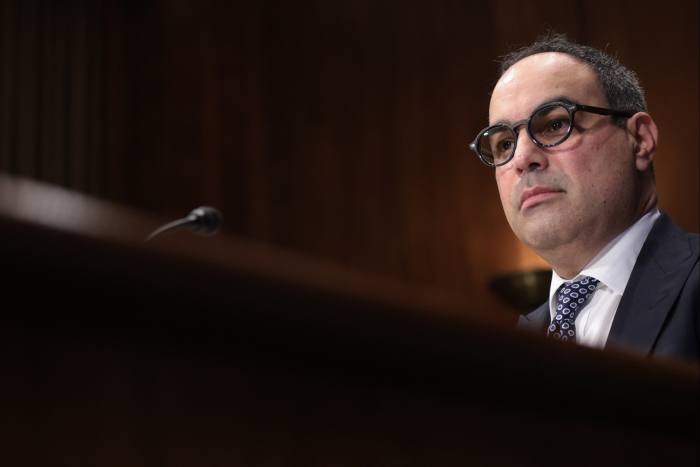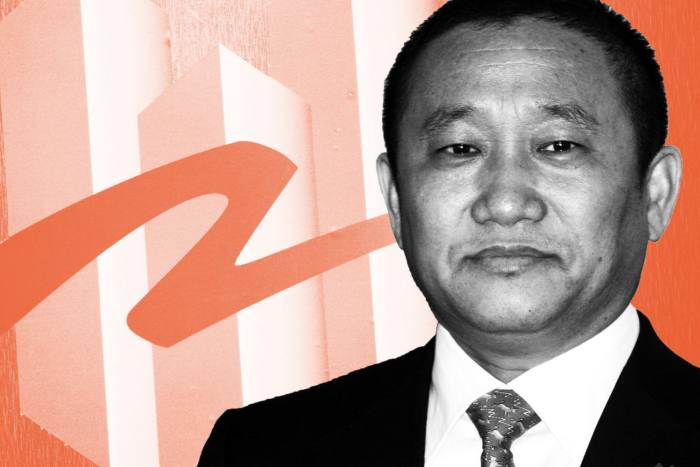
Welcome to Due Diligence, your briefing on dealmaking, private equity and corporate finance. This article is an on-site version of the newsletter. Sign up here to get the newsletter sent to your inbox every Tuesday to Friday. Get in touch with us anytime: [email protected]
In today’s newsletter:
-
M&A tries to chart a US comeback
-
Charlie Munger’s bet on Alibaba
-
The rise and fall of a Chinese aluminium empire
Is M&A back in the US?
We’ve all been consumed by Elon Musk buying Twitter, but zoom out and it’s obvious that dealmaking is down globally this year — by about a third compared to 2021, according to Refinitiv data.
The end of cheap cash to finance takeovers, Russia’s invasion of Ukraine, and a steep drop in equity valuations are all contributing factors.
Now there are signs that dealmakers are finding ways to get transactions through again. Just this week, we’ve seen three deals announced that are each worth more than $10bn.
Here’s a quick list of recent mega-transactions either in the works or agreed:
-
Johnson & Johnson agreed to buy cardiovascular technology group Abiomed for $16.6bn including debt.
-
Blackstone has agreed to acquire a majority stake in Emerson Electric’s climate technologies business in a deal that values the unit at $14bn.
-
Marine and energy asset owner Atlas Corp has accepted an $11bn take-private offer from Poseidon Acquisition Corp, the investment vehicle backed by Atlas’s chair David Sokol.
-
US grocer Kroger has agreed to acquire rival Albertsons for $24.6bn.
-
Rupert Murdoch’s proposal to merge Fox and News Corp after nearly a decade apart would result in the combination of the groups’ $17bn and $9bn market capitalisations, respectively.
-
And then there’s Musk’s $44bn Twitter takeover (DD broke down the latest in the saga yesterday.)
The common denominator of these megadeals? They’re all made in the USA.
Bankers told DD’s Ortenca Aliaj and James Fontanella-Khan that the US economy and consumer have remained robust. “There is a bifurcation between those companies that raised capital and those that didn’t,” said Stephan Feldgoise, co-head of M&A at Goldman Sachs. “Companies with cash can more easily make moves that will enhance their portfolio.”

At our DD Live conference in London last month, Centerview’s Blair Effron said he didn’t see M&A activity falling in the long term and emphasised the growing importance of private equity takeover activity.
An executive at a large buyout firm recently told DD they were growing increasingly aggressive, fearing that a market ripe with attractive valuations won’t persist for long. The bullishness was echoed by KKR on Tuesday.
“[The] overall mood and sentiment across KKR is quite positive,” said chief financial officer Robert Lewin on an earnings call. “In private equity, oftentimes, our best vintages result from investments made during periods of market distress . . . We think 2023 could present such an opportunity.”
Yet all this requires a dose of reality.
Unlike previous downturns, this one is happening at a time of rising interest rates that make private equity dealmaking more expensive.

Antitrust has been a concern for many dealmakers as Joe Biden’s watchdogs prioritise private equity regulation. Most of the heat remains on Big Tech groups, with Microsoft’s proposed takeover of Activision Blizzard still running through regulatory clearances.
Much of Wall Street expects the economy to go into a recession next year. While there are busier spots, such as in the energy and utilities sector, private equity firms, which have been large contributors to overall deal numbers, have pulled back.
A look at the Blackstone/Emerson deal shows how buyout groups can arrange large and complex transactions without broadly syndicated loan markets as banks all but stop funding leveraged loans.
While Blackstone was able to overcome major hurdles, there aren’t that many other firms with the size and scope to arrange a deal of that size on their own.
Bad news for Charlie Munger and the China bulls
In February 2020, Warren Buffett’s right-hand man Charlie Munger gave a harrowing outlook on the news business to shareholders of the Daily Journal, a California legal news provider that he has chaired since 1977. “My best advice, I think you would be happier if you reduced your expectations,” he said.
Despite the dismal forecast, the Daily Journal was actually in an enviable position compared to its peers: the paper began investing in stocks after the 2008 financial crisis, and has managed to generate millions of dollars in dividends as its peers have struggled to stay afloat.
The portfolio has been so successful that on certain days it has overtaken the value of the entire company, which in addition to owning a handful of newspapers sells software to US courts and probation offices. But even the legendary investor is capable of making a bad bet, as the FT’s Eric Platt and Anna Nicolaou report.
Charlie Munger has a publishing company with an enterprise value of $0 but an equity value of $365m because it owns a bunch of stocks. Fascinating story from @EricGPlatt @annaknicolaou: https://t.co/dqCY8A1K0S pic.twitter.com/wEHLZxe0aK
— Sujeet Indap (@sindap) October 29, 2022
Munger, now 98, stepped down as chair of the Daily Journal last year but continues to direct the publisher’s investment portfolio, which as of June has been sitting on $187mn of unrealised gains on a $342mn portfolio thanks to its investments in Alibaba, Bank of America, Wells Fargo and Chinese carmaker BYD among others.
The strategy hasn’t been without its risks. In 2021, the company went on a buying spree of Alibaba stock and had amassed shares worth nearly $72mn by the end of last year.
Munger himself executed many of these purchases, even as other investors were dumping their shares in response to Beijing’s regulatory crackdown on the tech sector. Alibaba stock has fallen 45 per cent this year, and is down 71 per cent since the Daily Journal first disclosed a stake in 2021.
“[We] invested some money in China because we could get more value in terms of the strength of the enterprise on the price of security than we could get in the United States,” Munger said at the Daily Journal’s 2022 shareholder meeting in February.
The Berkshire vice-chair isn’t the only one to have made a call on China that isn’t looking good. Chase Coleman’s hedge fund Tiger Global and Edinburgh-based investment group Baillie Gifford have also taken hits on their Chinese equity portfolios.
How so many famed stockpickers missed the signs is no longer the most pressing concern on investors’ minds. The more urgent question is how they intend to claw their way back.
‘Self-financing’ and the fall of an aluminium tycoon
When Chinese businessman Liu Zhongtian placed a bet on an Australian superyacht builder in 2017, the deal was supposed to help his aluminium powerhouse Zhongwang cruise into the marine sector “at full speed”.
Five years on, the wind has all but disappeared from its sails, leaving the company bankrupt with more than $60bn in debt, the FT’s Cheng Leng reports.

In September, a Chinese court approved an application for bankruptcy by creditors of Zhongwang, Asia’s biggest manufacturer of aluminium extrusions.
Its 252 affiliates and parent were “manifestly insolvent”, the court said.
Liu was once the richest man in China’s Liaoning province. As the economy cooled, and demand for Zhongwang’s products waned as the country’s property sector plunged, its business collapsed.
In a US judgment in April, six companies tied to Liu were ordered to pay $1.83bn in restitution after allegedly evading $1.8bn in import duties. But neither company representatives nor Liu appeared in court, the US Department of Justice said. It said China Zhongwang remained a “fugitive”.
In better times, Zhongwang had funded its own expansion. The company effectively financed itself, sourcing credit from its subsidiary Zhongwang Finance.
A crackdown on financial leveraging in China sent Zhongwang’s financial arm into bankruptcy on the same day as its parent, leaving Liu overleveraged and with limited options.
“The [lesson from] the fall of Zhongwang is the failure to crack down on these alleged self-financing activities,” said Shanghai lawyer Eugene Weng. “Such practices are a ticking time bomb and can hardly be tolerated by Chinese courts.”
Job moves
-
Deutsche Bank has appointed its former chair Paul Achleitner, former US secretary of state Henry Kissinger, former Google CEO Eric Schmidt, former PepsiCo chair and CEO Indra Nooyi, and two others to its new global advisory board.
-
Advent International has appointed Heather Kennedy Miner as managing director. She will also take on the role of chief operating officer at the beginning of next year. She joins from Goldman Sachs where she was a partner and COO of asset management.
-
Morgan Stanley has promoted senior M&A banker David Kitterick to deputy head of investment banking in Europe.
-
Greg Ruiz, private equity head of the California Public Employees’ Retirement System, will leave the fund to join investment firm Jasper Ridge Partners.
-
Martin Laguerre, the head of private equity at Canadian pension Caisse de dépôt et placement du Québec, is leaving his post after three years and will be replaced by Martin Longchamps.
-
City veteran Edward Bonham Carter will leave Jupiter Fund Management at the end of December after almost three decades at the firm.
Smart reads
The bubble has burst As the era of cheap money and low interest rates winds to a close, consumers are suddenly realising how much of their lives were subsidised. As the veneer of affluence is stripped away, reality is setting in, the FT’s Sarah O’Connor writes.
Back to the office In its efforts to curb the work-from-home migration and a mass exodus of financiers to Miami, New York developers are rushing to give Manhattan’s Park Avenue a luxury office makeover, Bloomberg reports. Firms including Citadel and GTCR have bought in.
Shoe shopping Adidas has lost half its market value and has a problem called Kanye West. While a leveraged buyout might save the shoemaker, Lex writes, few private equity investors are willing to take the risk.
News round-up
Musk outlines Twitter premium subscription plan for $8 a month (FT)
HSBC CFO Ewen Stevenson sought top job before surprise resignation (WSJ)
US judge blocks Penguin Random House and Simon & Schuster $2.2bn book megamerger (FT)
EY partner pay in UK hits £803,000 as consultants drive profit boost (FT)
Ocado shares soar on new South Korea retail partnership (FT)
Crispin Odey’s flagship hedge fund closes to new clients after Gilt market boost (Bloomberg)
Hong Kong reboot hits snag as bankers pull out of finance summit (Nikkei Asia)
Recommended newsletters for you
Cryptofinance — Scott Chipolina filters out the noise of the global cryptocurrency industry. Sign up here
The Lex Newsletter — Catch up with a letter from Lex’s centres around the world each Wednesday, and a review of the week’s best commentary every Friday. Sign up here